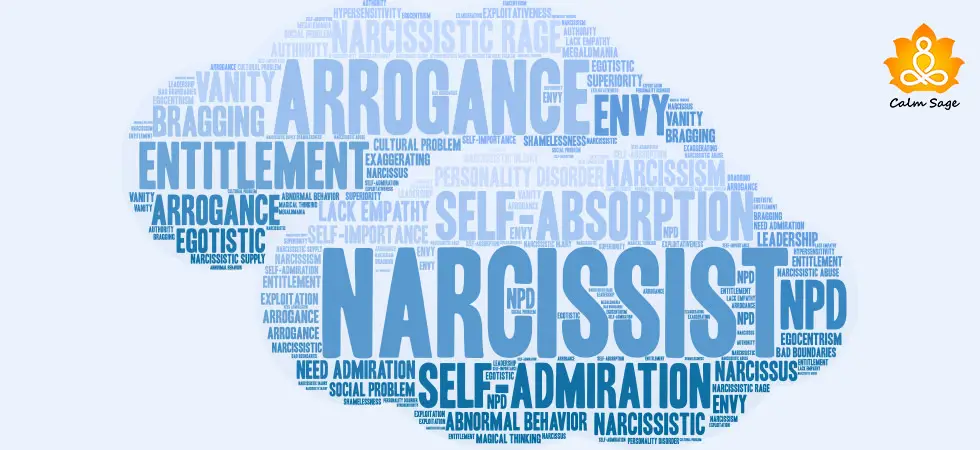When Too Much Confidence Turns Bad, Here’s What to Do!

“I wish to be confident in my skin” – I mean, who doesn’t wish for this, right? I, too, would want to be confident in everything I attempt, and why shouldn’t I – after all, confidence is celebrated as a key ingredient for success and happiness. But, like everything else, there’s a downside to having too much confidence.
Self-assurance is one thing, but when it becomes too much – more into the realm of overconfidence – it’s when it can ruin your success and harm your potential happiness. While healthy self-esteem can push us forward in life, excess can lead us astray.
Confidence, when you balance it well, can serve as a driving force, empowering you to take on challenges and pursue your ambitions. However, excess confidence – or overconfidence – can be bad when it begins to blur the lines between capability and overestimation of your abilities.
When too much confidence is there, it can lead to a myriad of issues, making it harder for you to make responsible decisions, manage relationships, and even take care of your well-being.
What Happens When You’re Overconfident?
Too much confidence can cause missed opportunities because you think they are easy for you to take on. You might even take on too much and say “YES” to all that comes your way – even the things that you lack the skills for. Moreover, the more confident you are (not the healthy kind, mind you), it turns into arrogance, self-conceitedness, and even borders narcissism traits.
So, When Does Too Much Confidence Turn Bad?
Having too much confidence is something beyond a simple display of self-assuredness; it involves an inflated sense of one’s abilities, a reluctance to accept one’s limitations, and a blatant disregard for any consequences that might come your way.
Here are some signs of overconfidence that can signify that you are veering into dangerous territory;
- You display a sense of absolute certainty in your opinions, regardless of the situation
- You dismiss or undervalue the opinions of others
- You don’t seek constructive criticism or even feedback as you believe you have nothing to learn
- You take high risks without considering the consequences of your actions
- You can’t accept and acknowledge your failures, and blame external factors for your failures
- You underestimate tasks and challenges, leading to inadequate preparation
- You are reluctant to admit your mistakes or limitations
- You are impatient and grow easily frustrated with people you believe are less capable
Ultimately, these signs can turn against you and can cause you to become overly arrogant rather than confident. Let’s see what too much confidence can do to you;
The Impact of Too Much Confidence
Because you fail to understand your capabilities, excessive confidence can cloud your judgment, leading you to make rash and poor decisions. These decisions you make are not thoroughly thought out.
Moreover, overconfident people often come across as arrogant, further straining their relationships and affecting teamwork. The more overconfident you are, the more you increase the risk of stopping yourself from growing in your personal and professional life. Overconfidence holds you back from learning from your mistakes.
In many ways, being overconfident can make you resistant to change and accept criticism – even if it is for your good. You dismiss the input you get, further stunting your growth and mindset.
But What Causes Too Much Confidence?
No one is born with confidence rooted in their hearts and minds; it’s a trait you develop as you grow older. So, what can cause you to become overconfident? Well, for one, setting unrealistic expectations for yourself can contribute to an inflated sense of confidence – inadvertently setting the stage for disappointment.
Limited exposure to failure or challenges can also create a false sense of invincible confidence, only feeding the toxicity of overconfidence. So, the more you stop yourself from experiencing failures and learning from your mistakes, the more you’re setting yourself up for overconfidence to take root in your heart and mind.
Also, when you’re constantly comparing yourself to others, especially in a selective way, it can lead to an exaggerated sense of superiority. I mean, the more you compare yourself – your experiences, dreams, and achievements with others – the more you begin to feel a sense of grandiosity and superiority. Not a good combination of traits now, is it?
So, How to Build Realistic Confidence?
Don’t fret! If you can relate to the signs of overconfidence, then I have some tips for you to destroy too much confidence and build realistic confidence;
1. Self-Reflect: Become self-aware of your strengths and weaknesses. The more you self-reflect on your actions, behaviors, and thoughts, the more you’ll realize what holds you back from growing, and what pushes you to become a better version of yourself.
2. Ask for Feedback: You need to be able to hear and understand constructive feedback and criticism that people offer to you. These comments can help you improve yourself and eventually, become a better person – in your personal, professional, and social life.
3. Set Achievable Goals: Overconfidence can make you believe that you can do anything, and achieve anything. It’s not realistic. No one’s stopping you from having big goals, but make sure they stay realistic, if not achievable. If you have larger goals, then break them down into smaller ones, so that you get a sense of accomplishment, one step at a time.
4. Learn From Mistakes: To be realistically confident, you need to be able to learn from your mistakes and failures. Instead of viewing your failures as setbacks, take them as an opportunity for growth. Allow yourself to make mistakes and don’t be afraid to fail. It’ll only help you be confident in yourself and improve your skills.
5. Keep Learning: Even if you’re confident, keep looking for new things to learn. It can become easy to be overconfident when you think you know everything. So, find something new that can help you work on your skills, and remind you to be humble.
Wrapping Up…
Our personality can make us or break us; with confidence being one of the most important contributing traits. In our lives, we need to find the right balance between being confident and being arrogant. Too much confidence can be bad for you, impacting your decisions, relationships, and even well-being.
Knowing what causes you to be overconfident, its impact, and the nuances of too much confidence, you can equip yourself with tools to navigate the thin line between self-confidence and too much confidence, bordering arrogance and self-conceitedness.
I hope this article helped you understand how too much confidence can be bad for your well-being and what you can do to keep yourself realistically confident. Let us know what you think about the article in the comments below.
If you enjoyed reading this article, then let us know by giving us a thumbs up or leaving us a message on our social media.
Take Care!
Next Read:
Revealed: 9 Warning Signs Of Low Self-Esteem & Lack Of Confidence
20 Journaling Prompts For Self-Love & Self-Confidence
How to Build Self Confidence by Identifying These Strengths?
Micromanagement 101: Effective Ways to Deal With Micromanagers!




















